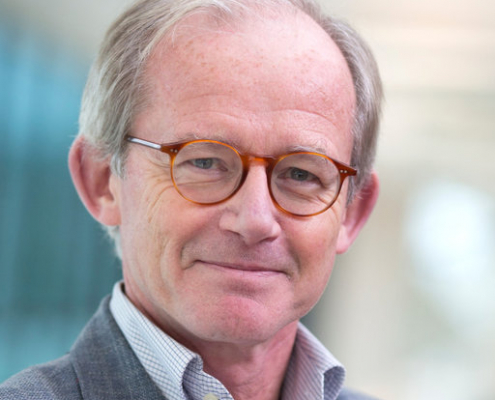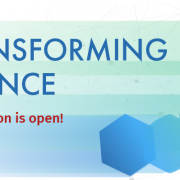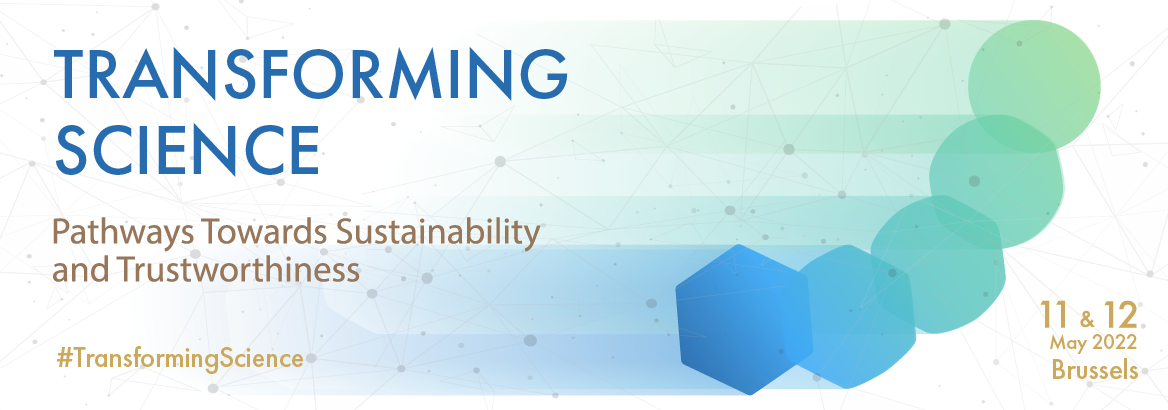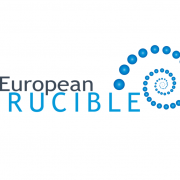Reducing Health Inequalities Is a Matter of Swimming against the Current

Reducing health inequalities is very much a matter of “swimming against the current”, says Professor Johan Mackenbach, Chair of the scientific committee of the ALLEA-FEAM report Health Inequalities Research: New Methods, Better Insights? “When societies become more unequal, as they do in many European countries, it is very hard to stop the health consequences of these inequalities from widening”, he explains in this interview with the ALLEA Digital Salon.
As one of the leading experts in public health in Europe, Mackenbach has dedicated a career to understanding the underlying causes of what makes some sicker than others. He has (co-)authored more than 700 papers in international, peer-reviewed scientific journals, as well as a number of books, and is a former editor-in-chief of the European Journal of Public Health. Over the course of his prolific career, he has come to recognise that there are no quick fixes to close the health inequalities gap, but points out that with more advanced research methods now available to understand causal mechanisms, perhaps more effective policy interventions can be developed.
“Only a few countries in Europe have taken serious action to translate scientific insights into policies and interventions to reduce health inequalities.”
Question: In the presentation of the report Health Inequalities Research: New Methods, Better Insights?, you said that health inequalities have no clear tendency to decline, and persist in even the most advanced welfare states. What are some first steps that we can take to narrow this gap?
Johan Mackenbach: It is indeed disappointing that, despite the growth of scientific knowledge on health inequalities, European countries have not been successful in narrowing the gap in morbidity and mortality between socioeconomically disadvantaged people and their richer or better educated counterparts. This is partly due to lack of effort: unfortunately, only a few countries have taken serious action to translate scientific insights into policies and interventions to reduce health inequalities. However, it is also partly due to the fact that trying to reduce health inequalities is very much a matter of “swimming against the current”: when societies become more unequal, as they do in many European countries, it is very hard to stop the health consequences of these inequalities from widening. While this shows that there is no “quick fix”, a lot can be done to reduce health inequalities. Let me give a few examples: Improve working conditions for people in physically or mentally hazardous jobs. Tackle socio-economic inequalities in smoking by raising the price of cigarettes and by offering free smoking cessation support to disadvantaged smokers. Alleviate poverty, particularly among children. Remove barriers to health care, including primary and preventive health care services, in disadvantaged areas.
“In many European countries, smoking is number 1 among the many factors contributing to health inequalities.”
Q.: The study underlines that there is reasonably strong evidence for a causal effect of the number of years of education on mortality in mid-life. Could you elaborate on why this causal effect happens?
J.M.: This is probably due to a cumulation of various beneficial effects of longer, or more, education. Education in large part determines people’s occupational opportunities, and thereby people’s living conditions throughout life. Education also helps people deal with complex problems, such as coping with financial stress or choosing a balanced diet. In addition to these indirect effects, there is also the more direct effect of education on people’s “health literacy”, which is important for understanding health risks and finding your way in the health system. More highly educated people also tend to marry a highly educated partner, which acts as a flywheel for all these beneficial effects.
“If smoking would not be more prevalent among the low educated than among the high educated, inequalities in life expectancy would be reduced by a quarter to a third.”
Q.: What is it not widely known about the causes of health inequalities that we should make people more aware of?
J.M.: In many European countries, smoking is number 1 among the many factors contributing to health inequalities. If smoking would not be more prevalent among the low educated than among the high educated, inequalities in life expectancy would be reduced by a quarter to a third, particularly in North-western Europe where smoking has become highly concentrated in socioeconomically disadvantaged groups. However, what people need to be made more aware of is not this simple fact, but the brutal reality underlying these numbers. The reality of going to school in a poor neighbourhood, where social norms are often pro-smoking and where the likelihood of starting smoking at a young age and thereby getting addicted to nicotine, is much higher. The reality of living in socioeconomic disadvantage makes smoking cessation as an adult much more difficult. And the brutal reality of a tobacco industry which continues to sell its deadly products to people who already have a lower expectancy and deserve to be better protected. If you do not understand these underlying factors, you could be misled to think that health inequalities are mainly a matter of individual responsibility.
“New methods can take advantage of “natural experiments” in which socioeconomic conditions change as a result of non-health-related changes in legislation.”
 Q.: The ALLEA-FEAM report provides a review of a new generation of quantitative methods and assesses their contributions in comparison with “conventional” methods. What are the most important takeaways of this evaluation?
Q.: The ALLEA-FEAM report provides a review of a new generation of quantitative methods and assesses their contributions in comparison with “conventional” methods. What are the most important takeaways of this evaluation?
J.M.: These new methods can help us answer a number of unanswered questions on the explanation of health inequalities. Scientists are pretty sure that smoking causes lung cancer and other health problems, but they are less certain about causality in the case of education and income versus health, because conventional research methods are more suitable for investigating the health effects of easily identifiable factors like smoking, than for investigating the health effects of socioeconomic conditions. These new methods can help to fill some of these gaps in knowledge, for example by taking advantage of “natural experiments” in which socioeconomic conditions change as a result of non-health-related changes in legislation. This is nicely illustrated by studies looking at the long-term mortality experience of people going to school before and after a change in legislation, which increased compulsory school leaving age by one year. Those who, in this “natural experiment”, went to school longer, simply because they were born later, turned out to live longer as well.
“While there can be no doubt that people living in poverty on average live shorter lives, and suffer from more illnesses during their lives, it is less clear whether this reflects a causal effect of low income on health, or perhaps has other explanations, such as differences in cognitive ability or personality characteristics.”
Q.: As these new methods are being applied, to what extent are they contradicting or shedding light on previous findings regarding the causes of heath inequalities? Could you give an example?
J.M.: An important “contradictory” finding relates to the health effects of low income. While there can be no doubt that people living in poverty on average live shorter lives, and suffer from more illnesses during their lives, it is less clear whether this reflects a causal effect of low income on health, or perhaps has other explanations, such as differences in cognitive ability or personality characteristics. Ideally, one would like to study this by conducting a true experiment in which people are randomized into groups with a higher and a lower monthly income. However, this is only rarely feasible, and these new methods now help scientists take advantage of “natural experiments” in which people receive a higher or lower income as a result of, e.g., a sudden change in welfare benefits or winning a prize in a lottery. Results from these studies have found some evidence for a causal effect of higher or lower income on children’s health and on mental health in adulthood, but surprisingly little evidence for a causal effect of higher or lower income on physical health in adulthood. Because of its policy relevance, this is clearly an area for further research.
“It is essential to include an inequalities perspective in climate change mitigation and adaptation policies, and to make sure that these policies duly protect those who need it most.”
 Q.: In your book A History of Population Health: Rise and Fall of Disease in Europe, you argue that the rise of so many diseases indicates that their ultimate cause is not to be sought within the body, but in the interaction between humans and their environment. What does the increasing degradation of the environment and the worsening climate crisis mean for the emergence of new diseases?
Q.: In your book A History of Population Health: Rise and Fall of Disease in Europe, you argue that the rise of so many diseases indicates that their ultimate cause is not to be sought within the body, but in the interaction between humans and their environment. What does the increasing degradation of the environment and the worsening climate crisis mean for the emergence of new diseases?
J.M.: I am very concerned about the effect of climate change, biodiversity loss, wide-spread chemical pollution and other environmental changes on human health. New health problems are emerging on the horizon before we have solved the problems of the past, such as the tobacco epidemic or, indeed, health inequalities. Unfortunately, health inequalities are likely to become even wider in the future if we do not take effective countermeasures. Climate change is already affecting the health of people in many low-income countries, and when serious effects of climate change reach high-income countries, they will certainly also affect disadvantaged groups more than the rich and high educated. It is therefore essential to include an inequalities perspective in climate change mitigation and adaptation policies, and to make sure that these policies duly protect those who need it most.
About Johan Mackenbach
Johan Mackenbach is Professor Emeritus of Public Health and former chair of the Department of Public Health at Erasmus MC, University Medical Center Rotterdam, the Netherlands. His research interests are in social epidemiology, medical demography, and health policy. He has (co-)authored more than 700 papers in international, peer-reviewed scientific journals, as well as a number of books, including Health inequalities: persistence and change in European welfare states (Oxford University Press, 2019). He is a former editor-in-chief of the European Journal of Public Health, and has been actively engaged in exchanges between research and policy, among others as a member of the Health Council of the Netherlands and the Council for Public Health and Health Care. He is also a member of the Royal Netherlands Academy of Arts and Sciences and the Academia Europaea.






